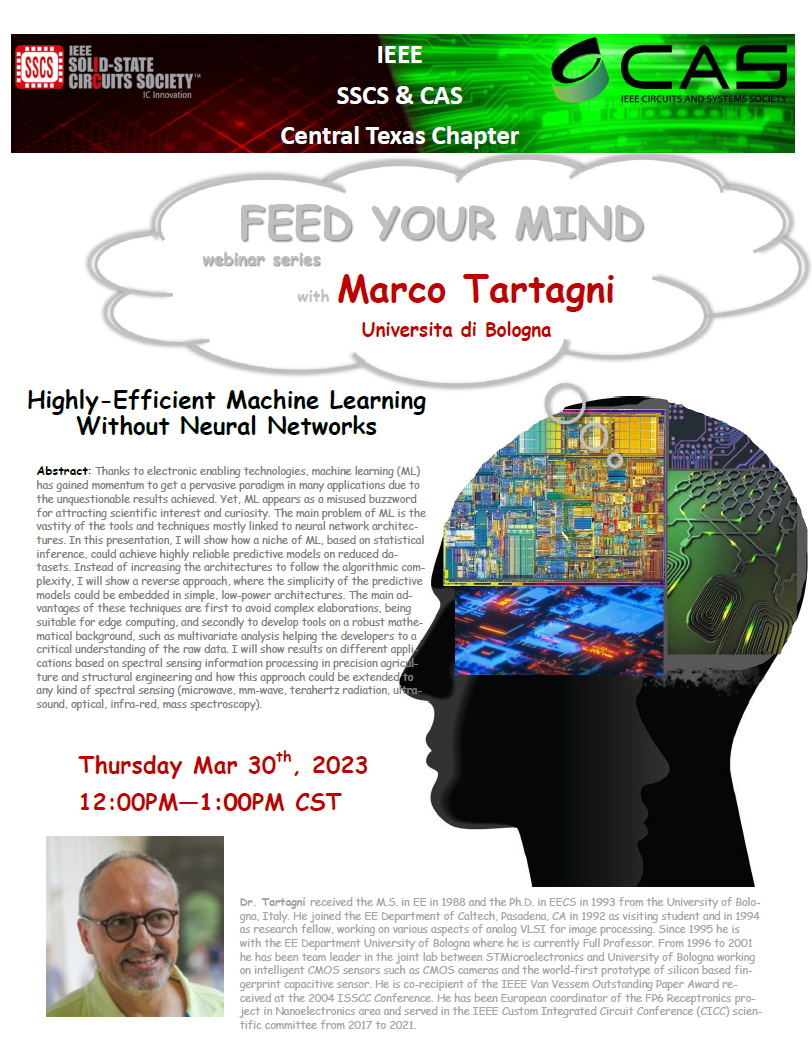Feed Your Mind - Highly-Efficient Machine Learning Without Neural Networks

Thanks to electronic enabling technologies, machine learning (ML) has gained momentum to get a pervasive paradigm in many applications due to the unquestionable results achieved. Yet, ML appears as a misused buzzword for attracting scientific interest and curiosity. The main problem of ML is the vastity of the tools and techniques mostly linked to neural network architec-tures. In this presentation, I will show how a niche of ML, based on statistical inference, could achieve highly reliable predictive models on reduced da-tasets. Instead of increasing the architectures to follow the algorithmic com-plexity, I will show a reverse approach, where the simplicity of the predictive models could be embedded in simple, low-power architectures. The main ad-vantages of these techniques are first to avoid complex elaborations, being suitable for edge computing, and secondly to develop tools on a robust mathe-matical background, such as multivariate analysis helping the developers to a critical understanding of the raw data. I will show results on different appli-cations based on spectral sensing information processing in precision agricul-ture and structural engineering and how this approach could be extended to any kind of spectral sensing (microwave, mm-wave, terahertz radiation, ultra-sound, optical, infra-red, mass spectroscopy).
Date and Time
Location
Hosts
Registration
Speakers
Marco Tartagni
Highly-Efficient Machine Learning Without Neural Networks
Biography:
Dr. Tartagni received the M.S. in EE in 1988 and the Ph.D. in EECS in 1993 from the University of Bologna, Italy. He joined the EE Department of Caltech, Pasadena, CA in 1992 as visiting student and in 1994 as research fellow, working on various aspects of analog VLSI for image processing. Since 1995 he is with the EE Department University of Bologna where he is currently Full Professor. From 1996 to 2001 he has been team leader in the joint lab between STMicroelectronics and University of Bologna working on intelligent CMOS sensors such as CMOS cameras and the world-first prototype of silicon based fingerprint capacitive sensor. He is co-recipient of the IEEE Van Vessem Outstanding Paper Award received at the 2004 ISSCC Conference. He has been European coordinator of the FP6 Receptronics project in Nanoelectronics area and served in the IEEE Custom Integrated Circuit Conference (CICC) scientific committee from 2017 to 2021.
Address:Texas, United States


 Add Event to Calendar
Add Event to Calendar